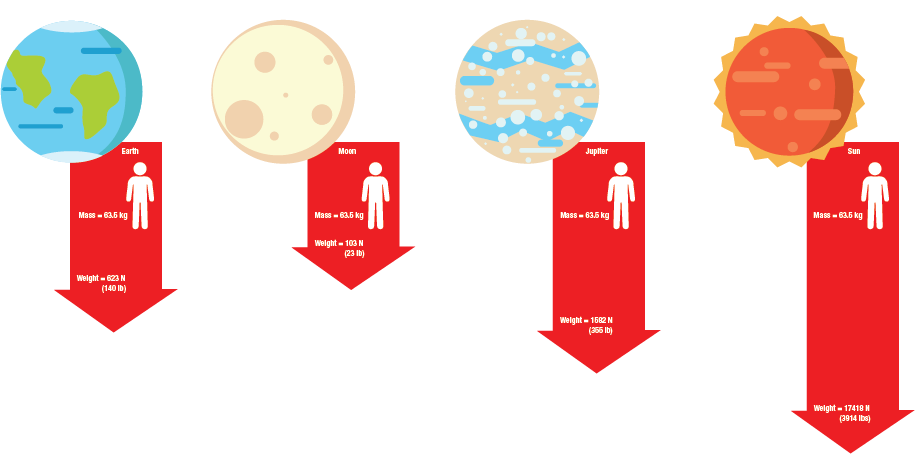Is the website displaying in the correct language? Please confirm or select a different language.
Your region has been set automatically. Please confirm or select a different region.
What is the Difference Between Mass and Weight?
Although often used interchangeably, mass and weight are two distinctly different units of measure.
The difference between mass and weight is that mass measures how much matter comprises an object, while weight measures gravitational pull. Mass is the measure of an object’s resistance to changes in either the speed or direction of its motion. The mass of an object is not dependent on gravity and therefore is different from, but not proportional to its weight. Weight is the measure of the force generated by the mass of an object being acted on by gravity.
A crucial difference between mass and weight is that weight varies by location and mass is constant. For example, a 100-kilogram calibration weight on Earth will have the same mass property on Mars. A 100-kilogram calibration weight will weigh 100 kilograms on Earth, but only 37.7 kilograms on Mars. The matter, or mass, of the weight did not change; the gravitational pull acting on it did.

Weight (w) = Mass (m) x the acceleration of gravity (g)
Additionally, weight and mass are often thought to be measured in the same way. Because weight and mass do not have a significant difference in everyday use on Earth, people often use the same unit of measure to express them. However, because weight is force it should be measured in Newtons and mass should be measured in pounds or kilograms.
The numerical weight on a scale must then be converted to pounds or kilograms. To avoid confusion in most sectors on Earth (besides scientific), weight is commonly expressed in pounds or kilograms.
Watch this ScaleTalk to view the difference of mass and weight using our 1280 Enterprise™ Series.
Rice Lake Weighing Systems offers a broad selection of balances and scales to meet the needs of every application. For more information, contact a Rice Lake expert at 800-472-6703.



 My Account
My Account
